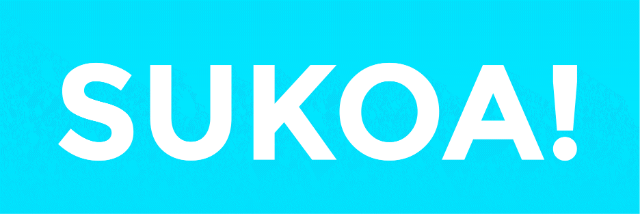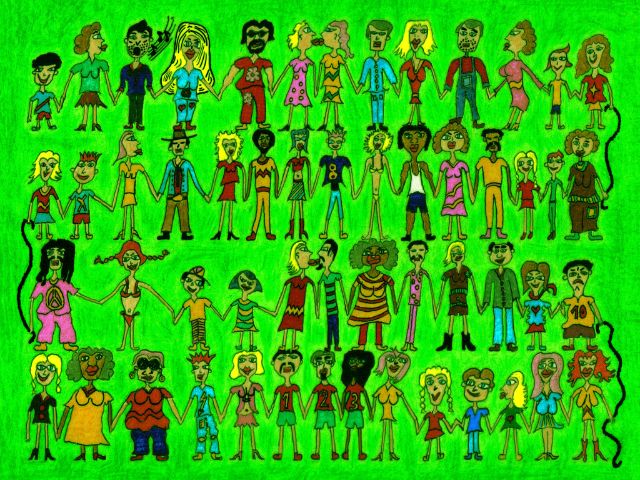
Aktionswoche gegen Rassismus 2024
Dank der finanziellen Unterstützung der kantonalen Fachstelle Integration und Antirassismus und der eidgenössischen Fachstelle für Rassismusbekämpfung organisiert Radio X im Rahmen der Aktionswoche gegen Rassismus vom 18. bis 24. März 2024 die Auftaktveranstaltung zum Thema Alltagsrassismus sowie ein vielseitiges Radioprogramm.
Podiumsdiskussion über Alltagsrassismus am Montag, 18. März ab 18h im kHaus
mit einer Begrüssung von Jenny Pieth (Co-Leiterin der Fachstelle Integration und Antirassismus), Inputreferat Danielle Isler (Sozialwissenschaftlerin Universität Bayreuth), Podiumsdiskussion mit Stéphane Laederich (Rroma Foundation), Guilherme Bezerra (brasilianischer Medienschaffender) und Danielle Isler. Moderiert von Elisa da Costa (Gründerin Blackfluencers und Afrokaana). Anschliessend Fragen aus dem Publikum plus Apéro.
Darüber hinaus bietet Radio X in der Aktionswoche ein randvolles Radioprogramm mit antirassistischen Beiträgen:
Mo, 18.3.: Info, was in der Aktionswoche ansteht
Di, 19.3.: Antisemitismus
Mi, 20.3.: Rassismus im Cosplay
Do, 21.3.: Sans Papier - eine Stimmungsaufnahme
Fr, 22.3.: FCB-Antirassismuskampagne
Sa, 23.3.: Racial Profiling
So, 24.3.: Rassismus auf der Wohnungssuche
Zudem arbeiten viele Partnerorganisationen in Kooperation mit der kantonalen Fachstelle Integration und Antirassismus:
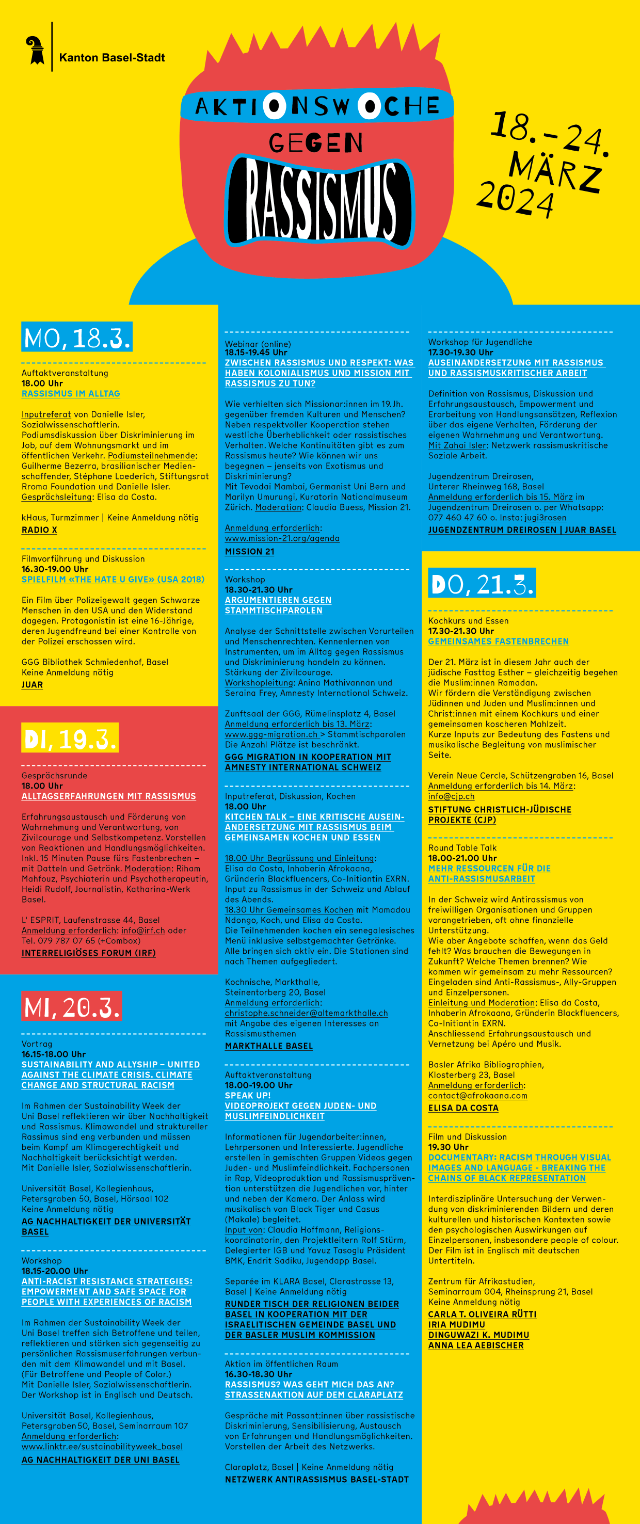
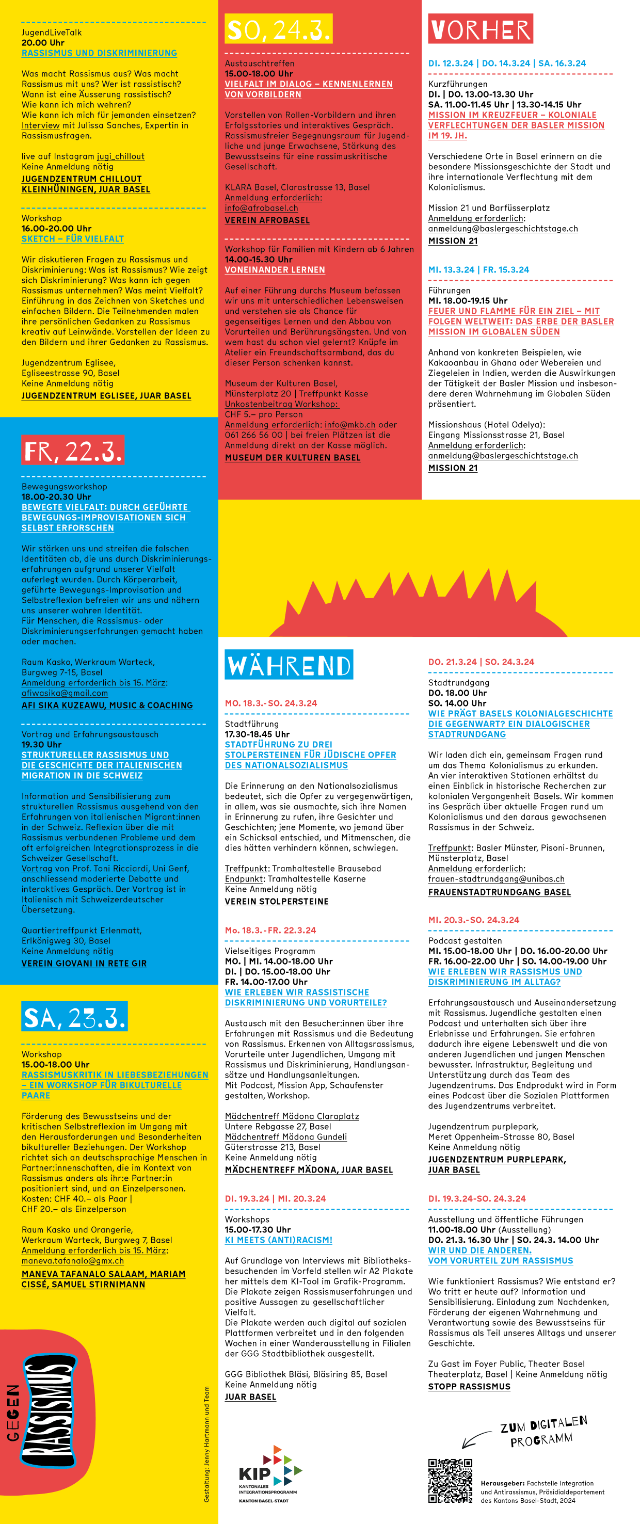
Kontakt
Social Media
Mit der finanziellen Unterstützung von:


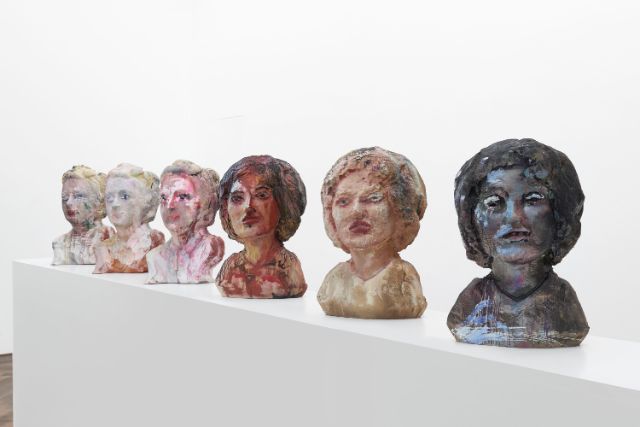
Kaari Upson - so sinnlich, so exorzistisch!
In ihrer Einzelausstellung Go Back The Way You Came erforscht die Kalifornierin zutiefst Subjektives und wirft dabei allerlei Fragen auf, die es nicht unbedingt zu beantworten gilt. Aktuell zu sehen in der Kunsthalle Basel. von Mirco Kaempf
19.09.28 Kaari Upson
Die Kalifornierin Kaari Upson ist sowas wie eine poetische Anthropologin. In der Ausstellung Go Back The Way You Came erhebt sie Vergangenes zu exorzistischen, post-Realen Kunstformen.
"San Bernardino liegt in Kalifornien und ist der Ort, aus dem McDonals entsprungen und Meth Amphetamin entdeckt worden ist" - So leitet Elena Filipovic, Direktorin der Kunsthalle Basel, auf die aktuelle Ausstellung Go Back The Way You Came ein. Beide, sie wie auch die Künstlerin Kaari Upson haben dort ihre Kindheit verbracht. Nebst vielen schönen Erinnerungen sei es allerdings auch ein Ort des Traumas, so Upson. Diese Erinnerungen bereitet sie auf, teilweise anthropologisch genau, manchmal absichtlich subjektiv und lose, um Kunst entstehen zu lassen. In unserem Gespräch gab sich die Künstlerin lässig, zugänglich und hatte auch ein paar Tipps und Einsichten für Studierende übrig. Die Ausstellung läuft noch bis am 10. November.
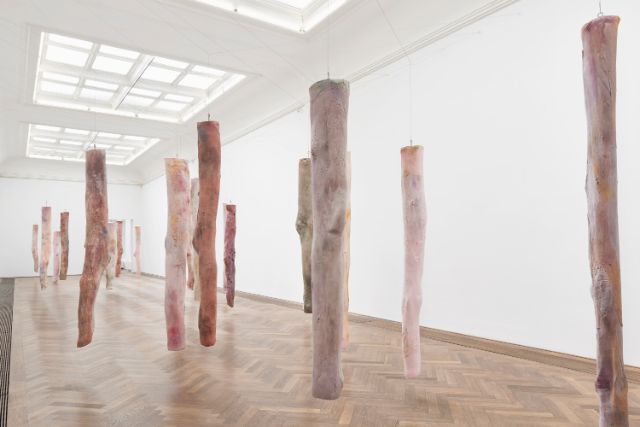
Right, so are you more of a punk than a classic rock fanatic?
Kaari Upson: I would like to think so, I’m a little old to be punk, but yeah!
It’s all a state of mind! But yeah, « Go Back The Way You Came » - the way Elena Filipovic told us about San Bernardino, it seemed to me like it would be a place of violence and the elements going crazy. Why do you go through that whole trauma of revisiting your home or your childhood home?
Well first of all I am very interested in the fact that this becomes a little bit more plural. For example I'm expanding the subjectivity through the lense of my friend at times. It’s not as personal as it seems but it stands in for any sense of place that had ritualistic trauma to it. And the very reason to rehearse it, or bring it back, is so that it’s not repressed. So it’s simply to unearth it and free yourself from it. I’m very interested in psychology and Freud and misreading Freud… so there is a time when you’re caught in the maze of it and you can’t get out and then all of a sudden when I’m installing [the work] in here and realising we were exorcising some real shit. And so you do that so that you don’t carry it. And that’s it. So why do it? It’s so I don’t become like my other crazy relatives that pretended it didn’t happen and literally closed the door and walked away and I exorcise the shit out of it.
So your own past doesn’t become a prison. Are you just a visitor basically?
There is so much time slippeage in it, I don’t know where I’m placed anymore. The idea of going in and just being a visitor doesn’t seem correct. It’s like it’s more than that. I think it’s the idea that I became it and it’s deadcenter inside of me and then I can decide to free it.
You as an artist make the personal universal in a way and I read that you had a painterly background. These wooden legs («Mother’s Legs») are basically paintings, which I quite like. When you did these, was there a more meditative approach to it or was the process a more rebellious one?
It was the most physical work! We were sweating in hazmat suits as a crew, we were playing the Yeah Yeah Yeahs and it was a very physical process. It was almost like we were athletes… You pull this rubber-like thing off of it hoping it’s not gonna rip and you laugh a lot because you’re falling over trying to pull this elastic band off of this hopefully static, solid thing… and you don’t know what it’s gonna look like so you get this moment of reveal… So there is a lot of laughing and having fun and it was a lot of like playing a game and hoping you’d win. So it’s not a meditation! Even when I was painting it was like «what is this gonna be» and like, wanting to own it… like master that moment and not fail.
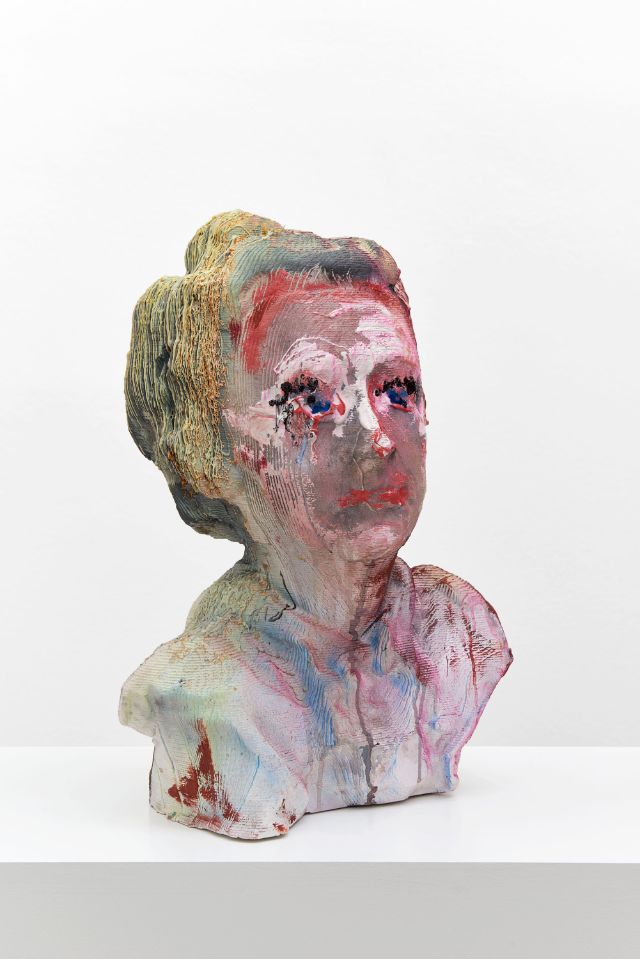
I like that approach, not quite knowing how it will turn out… You once stated that once your work leaves the studio, it’s dead.
Yeah
So is this dead art, does it belong to eternity now?
Yeah it’s dead! Sorry, it’s dead! But dead art is a good thing. I love the idea that it’s no longer mine. The only thing about I’d say that’s not true is the drawings. I could at any point go back in. I made them so big so that nobody should frame them so that if I’d see it anywhere I could just walk up to it and add another piece of text or a drawing if it’s neccessary. But I love the moment when the work leaves because we spraywash the whole studio with this giant machine and the whole studio becomes this giant puddle of water and then we normally throw a very large party – we didn’t get to do it yet – and we have a theme for the party which we take very seriously. And we cook whole pigs and have a DJ and we celebrate, and then we start all over again.
Do you like museums?
I love museums but I haven’t been able to see any since I arrived !
Don’t you feel like if a majority of society reveers a certain kind of art it’s kind of…
Oh yeah that’s total shit. When it’s the board members that… [pauses] Yeah I didn’t have the privilege to go to museums as a kid. My first experience of going to a museum was MOCA and I was 19 and I saw the Helter Skelter show and it was the best show, still in my head. Because well, it was my first show! And I went with this boyfriend who was being a complete asshole and then he left me alone and drove off so I was stuck walking around in this museum which was like a warehouse… looking at the craziest shit in my life. I mean this was Paul McCarthy and Raymond Pettibon was on the back wall and there were just these doodles on these pieces of paper... so that’s my experience of a museum. Otherwise yeah, it’s just the idea that every student that I know wants to show in an institution - I would say you got it all fucking backwards! I mean that’s the very thing we shouldn’t be aspriring to because it’s a closed system and there’s more power in other places. So yeah, we still have our own little areas like in my studio, we are opening a tiny little restaurant for one and it has like a turnover space where I get to do whatever I want or whatever they want but yeah…. I still love museums.
What would you say to those students of art then, how do you become culturally significant ?
Oh, am I significant ? (laughs) I don’t know. You come back in ten years and maybe I’ll have an answer.
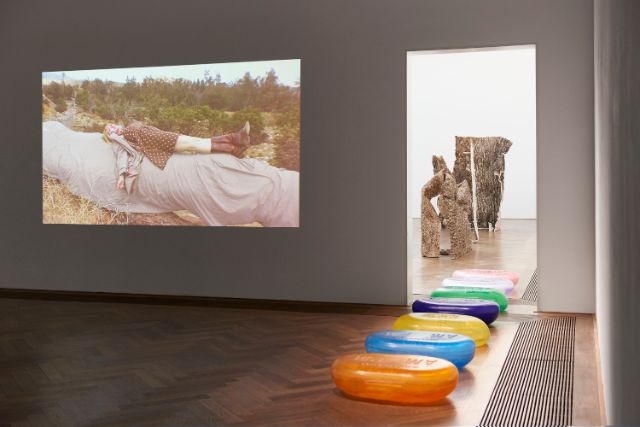
Should it be the goal though, to become significant ?
No ! I’m too public now, nobody should recognise me. And they don’t. Because artists aren’t famous people. There is no ‘becoming that’. The goal should be that nobody can locate you completely. That’s my answer.
I started late. I think the best thing you can do is not show your artwork. And stay hidden for a very long time and then you know the moment that you need to show it. Because I didn’t even know for most of my years painting that you need context. And you need a viewer in order for it to be art. My closest friend said that I wasn’t an artist because nobody saw the work. And it freaked me out because I didn’t even know that was possibility. I was like, I’m painting since I’m 16 and she was my best friend and she said that’s not art because there is no context. And so I gave examples of some guy in Siberia that was cutting trees and carving them in the middle of nowhere, so he’s not an artist? And she said no. So I decided to go back to school and have conversations and for me it was the greatest experience of my life because well, I was ready for it.
Do you think that the becoming of the self is the most important thing in the world?
Well since all my work is circling that, I think it’s circling it because I’m questioning if that’s even true. We cut this tree down and the recording of it didn’t account for it very well at all - even though it was really impactful. I mean, this tree was 80feet with the branches and when it hit the ground I had this very weird moment where I felt like that this is so much more important than anything. I couldn’t give it language. It was a crazy feeling that something was so much more relevant than anything. Like all those neuroses, ideas and thoughts of humans meant nothing. It was a real physical space. So I don’t know, maybe I’m circling the Self because I don’t know if that’s the thing where it actually is at.
Would you say though that this is exactly the most important thing an artist can do, to explore his or her own soul until it’s bare so the rest oft he world can benefit from that?
No I would not say that. I record myself in ways, but what I’m doing is to pathologically, impulsively, irrationally and rationally record everything. The video is recording, the sound, the putting latex on shit, the, sitting and writing thoughts about your dreams – All of it is recording. I don’t really look in as much as I think I’m looking out – and then taking it all and then filtering it through what I have, which is this body and that’s the only time when I think that I matter.
That sounds like a very scientific approach
It is ! I took a lot of anthropology courses and look at documentary, film and stuff. I really like the slippeage in it, finally pointing back to the fact that there is no way to record without altering and that there is always subjectivity in everything. And I like that. The more of it, the better !
Last question, what disturbs you most about the modern world?
(pauses) That anybody could find me at any time because I have this phone… Like I can’t get lost. And I used to say that the feeling of being lost, like when you literally go to a place and you don’t know where you are is one of my happy moments. And I don’t have that anymore – cause I have a phone. And I always know where I am. All the time. And it sucks.
Throw it into the river!
No ! People need to reach me! I have to talk to them! So I’m never lost anymore.
Thank you for the interview!
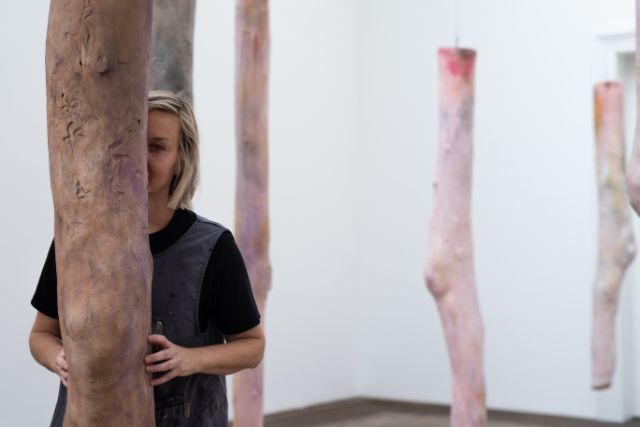



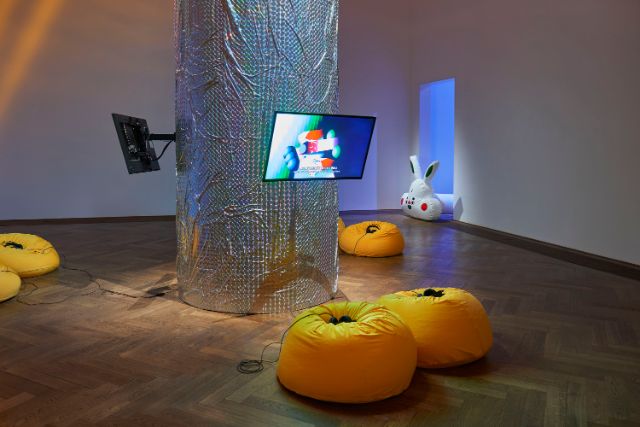
.png/jcr:content/magnolia-medium.png)
